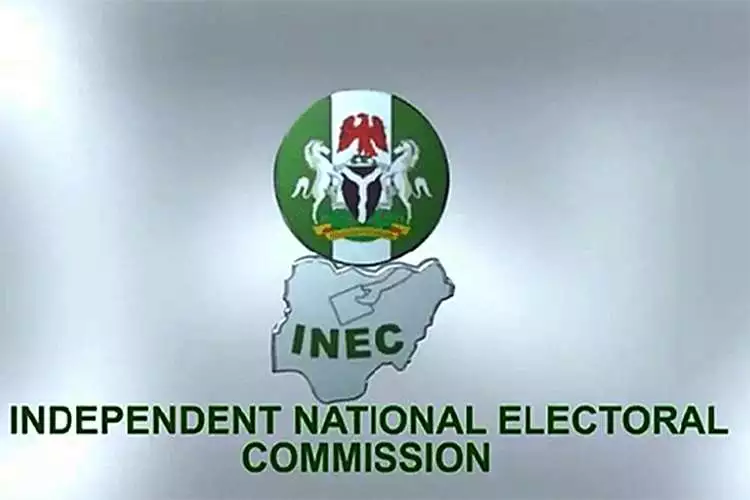Despite objections from Northern elites and the rumpus being created at the National Assembly, the Independent National Electoral Commission, INEC, is still insisting it is ready to deploy electronic transmission as a means of collating election results baring legal backing to their position.
INEC Chairman, Mahmood Yakubu released a position paper Saturday, which indicates that there is adequate infrastructure to launch electronic transmission of results.
“The Independent National Electoral Commission INEC believes that it has developed adequate structures and processes to successfully transmit election results electronically”, an extract from the paper, tagged “Position paper 1 of 2021.
“Electronic transmission of results will improve the quality of election result management and that our engagement with stakeholders shows that the Nigerian public supports it. The technology and national infrastructure to support this are adequate. Consequently, if the choice was up to INEC, the Commission prefers to transmit election results electronically once the necessary legal framework is provided.”
Some politicians have cited epileptic service provision by telecom industries in the North as a reason for their opposition, declaring that the North is not ready for technologies of that nature. The National Assembly had indicated that it can only be possible if INEC obtained attestation from the Nigerian Communication Commission NCC and approval of the National Assembly, a position INEC claim is unconstitutional.
“Two guiding principles underlying the Commission’s application of technology are timeliness and relevance. These principles underscore the Commission’s belief that the time has come for Nigerian elections to transcend the cumbersome, tardy, and vulnerable manual transmission and collation of election results to electronic transmission.
“Recently, in the course of the National Assembly seeking to amend or repeal and re-enact the Electoral Act 2010, a national debate has arisen over the question of electronic transmission of election results. The controversy has revolved around the readiness to transmit by INEC and the capacity of national infrastructure for transmitting election results electronically. It is worthy of note that none of the sides in this controversy appears to substantially question the desirability of electronic transmission of election results. It seems that only the preparedness of INEC and the capacity of national infrastructure are questioned.
“Since INEC’s readiness has become a cardinal issue in these debates, the Commission has decided to articulate and make public its position and thinking on this question, particularly for two reasons. First, many Nigerians have called on the Commission to make its position public. Second, we hope that by doing so, some of the fervor that has tainted the discussions may recede and make common grounds and consent to chart a more progressive way forward…
“A decade is not a short time for the Commission to determine whether it is ready. Our position is not meant to support or undermine any side in the ongoing debates. Our understanding is that as a responsible corporate citizen, particularly one whose constitutional responsibilities are at stake, INEC should lend its voice to such a momentous issue of public concern. As such, INEC’s intervention in these debates, particularly through this Position Paper, should not be misconstrued as denuding the powers of any other agency or authority to perform its functions or to hold views on the issues in question that are contrary to those of the Commission.”
He showed examples of test runs of electronic transmission from all states of the federation, including the core North.
“The conclusion that the Commission draws from these diverse pilots conducted since 2011 is that the country is ready for electronic transmission of results. The national ICT infrastructure is also e purpose of electronic transmission of results. This is underscored by all the discussions we held with the Mobile Network Operators (MNOs) and the regulator, Nigerian Communications Commission the ten years-year periods of these pilots, but especially between 2018 and 2019.
“The Joint Committee (of INEC and NCC) also found that mobile networks adequately covered 93% of INEC Polling Units with the capacity to cover the outstanding 7%. The Committee went on to allocate Polling Units to the four major mobile network operators – Airtel, Glo, 9Mobile to transmit election results.
“A total cost implication of Three Hundred and Ninety-Five Million, One hundred and Twenty-Three Thousand Naira (N395,123,000) was worked out for covering the cost of SIM, system configuration and integration, system support and data bundle with one-year, validity.
“In addition, the Joint Committee made other technical recommendations, including the allocation of one terabyte (1TB) of data bucket per 10,000 SIMs per annum by the network operators and configuration of one Access Point Name (APN) and Virtual Private Network (VPN) “by all operators towards INEC platform to enhance security”. Such detailed work and recommendations involving the major MNOs and the NCC as the regulator of telecommunications in Nigeria, profoundly convinced INEC that electronic transmission of election results was possible for the 2019 General Election.
“However, INEC expected to receive a clear legal mandate for electronic transmission of election results with the Electoral Act amendment that was ongoing to commence implementation. Unfortunately, that did not happen.
“Based on the foregoing, INEC is convinced that the nation has the infrastructure to implement the electronic transmission of election and the capacity to do so and network coverage across the country is adequate and secure. This position is substantiated by the 2018 position of the people who should know namely, the MNOs, who informed the Joint Committee that they had provided such services to other customers, including the NCC which regulates telecommunications in Nigeria.”
Discover more from The Source
Subscribe to get the latest posts sent to your email.








